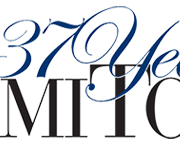Company Escalates Fight With I.B.M. By Revoking License to Key Software
/in Firm News /by Kris WilliamsSoftware Company’s Battle Over Unix Produces Profit
/in Firm News /by Kris WilliamsBy Steve Lohr
A recent campaign of litigation and warnings by a Utah software marketer against companies that use Linux has helped make the company profitable for the first time ever, it said yesterday.
Less than three months ago, the company, the SCO Group, started what has become an escalating skirmish in the software industry by asserting that its rights to the Unix operating system were being widely violated by computer companies that back Linux, and perhaps by the thousands of companies that use Linux.
The latest volleys came yesterday. Novell, which sold the Unix business to SCO in 1995, contended that it had not passed on the intellectual property rights to the system in the sale to SCO, a contention SCO disputes. And a German software group, Linuxtag, threatened to sue SCO unless it stopped its anti-Linux campaign.
Linux, which is distributed free, is a close relative of Unix, which was originally developed at AT&T Bell Labs in the late 1960’s. But the commercial rights to Unix, after a series of transactions, are now held by SCO, which has licensed that underlying technology to other companies, including I.B.M., Sun Microsystems and Hewlett-Packard, to develop their own flavors of Unix.
There was good news yesterday for SCO, as well. The company reported a quarterly profit of $4.5 million on revenue of $21.4 million. SCO said it collected $8.8 million in cash from its new division set up to enforce the company’s rights to Unix.
One company that refused to pay under SCO’s tough new enforcement regime was I.B.M., an early and ardent supporter of Linux; I.B.M. offers its own version of Unix, called AIX. SCO sued I.B.M. in March, seeking damages of at least $1 billion, contending that I.B.M. violated its contract with SCO by putting Unix code into Linux.With deep pockets and a wealth of legal expertise, I.B.M. would be a formidable courtroom foe for SCO, a small company based in Lindon, Utah. But SCO insists it has a long-term strategy. ”If it takes a couple of years, we’re geared to do that,” Darl McBride, SCO’s president and chief executive, said yesterday.
SCO has some formidable legal talent in its corner. The company is represented by Boies, Schiller & Flexner, a firm led by David Boies, the renowned litigator who was part of the team that defended I.B.M. in a long-running federal antitrust suit the government eventually dropped in 1982. And Mr. Boies represented the government in its successful antitrust prosecution of Microsoft.
Mr. McBride became chief executive of SCO, which was then called Caldera Systems, last June and sought out Mr. Boies at the end of last year. ”We went for the biggest gun we could find,” he said.
Mr. Boies was in court on another case yesterday, but a partner, Mark A. Heise, said the SCO suit against I.B.M. was the kind of case that appealed to his firm. The suit, according to Mr. Heise, pointed to a larger issue. ”Here,” he said, ”the issue is, Are we going to enforce people’s contract obligations? Or in the arena of computer software, are we going to toss that out?”
To its critics, SCO is simply engaged in a mercenary program to extract royalty payments from other companies and slow the advance of Linux. Earlier this month, SCO sent letters to 1,500 companies warning them that using Linux — a collection of contributions from many programmers — could be legally risky. ”We believe,” the letter stated, ”that Linux is, in material part, an unauthorized derivative of Unix.”
Yesterday, Jack L. Messman, the chairman and chief executive of Novell, called on SCO to substantiate that contention. Unless it does, Mr. Messman wrote in a letter to Mr. McBride, ”it will be apparent to all that SCO’s true intent is to sow fear, uncertainty and doubt about Linux in order to extort payments from Linux distributors and users.”Mr. Messman also said that the 1995 sale of Unix to SCO did not include the software copyrights, raising doubts about SCO’s ability to enforce the intellectual property rights claims.
Mr. McBride replied that while Novell might have retained some intellectual property rights, SCO did have the legal right to enforce most of the copyright and patents for the Unix technology. Earlier this year, SCO did try to obtain all copyright and patent rights from Novell. But Mr. McBride said he abandoned that after SCO’s lawyers decided the stronger legal claim was to pursue I.B.M. on the grounds that it violated its contract obligations. I.B.M. denies the accusations in the SCO suit.
Still, if the SCO claim to intellectual property is undermined, the concerns of most Linux users will be eased. The SCO letter to Linux users on May 12 repeatedly asserted SCO’s contention that Linux infringes the company’s Unix intellectual property rights.
Software companies, like I.B.M., whose programmers contribute to Linux, often have contracts with SCO. But most corporate users of Linux do not.
14 Million Miami Parking Refund Still Tied Up In Courts
/in Firm News /by Kris WilliamsBy Susan Stabley
A $14 million settlement offering Miami commuters a refund of the city’s parking surcharge faces a barrage of legal appeals and motions.
First, operators and owners of parking lots in Miami say they are being shortchanged by details of the settlement. A second challenge is brewing from a Miami attorney who defends parties in class action suits who calls the settlement flawed and unfair because it does not repay all involved equally.
On the opposite side is Joseph Serota, attorney for Miami, who warns that if the settlement is tossed out over any of these challenges, the city may not return to the negotiating table.
The settlement stems from a class-action suit filed by Patrick McGrath III of Pinecrest and ultimately decided by Florida’s Supreme Court which ruled that the law creating the parking fee was invalid as written in 1999. Created to offset property taxes while the city was having serious financial problems, the law allowing the surcharge since has been rewritten, and Miami’s parking fee is in effect until Oct. 1, 2004, under the settlement.
The preliminary settlement established a $14 million pot to refund the city’s 20% surcharge on parking fees collected from Sept. 1, 1999, to Sept. 30, 2002. Now, a recent appeal filed by Parking Company of America Inc., operator of a parking lot near American Airlines Arena, and a separate suit filed by other parking operators raises the question of whether lot operators and owners should also benefit. The parking operators think they should receive refunds because they absorbed the surcharge rather than passing it on to customers.
Representing the three owners plus the operator, Parking Company of America Inc., of the parking lot across from American Airlines Arena is Patrick A. Barry of the Fort Lauderdale offices of Stearns Weaver Miller Weissler Alhadeff & Sitterson.
“My client believes that parking operator who did not pass on the surcharge to parking users be entitled to a refund,” said Mr. Barry.
Ampco System Parking, Quik Park of Florida, and other parking operators are challenging the surcharge and its settlement. This group of operators is not involved in the original McGrath lawsuit.
“We elected not to seek inclusion in that settlement but instead pursued our own lawsuit in 2001,” said Luis Espino, Miami attorney representing Ampco. The litigations from lot operators and owners ironically put Mr. Serota of the city and plaintiff attorney Thomas J. Korge of Korge & Korge on the same side of one of the issues: The argument that the refunds should go to people who paid to park in the lots, not those who merely collected the fees, regardless of whether rates were raised. For now, the appeal cancels this month’s deadline for seeking settlement refunds.
“It’s wide open,” said Mark Heise of Boies Schiller & Flexner, who with Korge & Korge represented the plaintiffs.
The filing deadline, under the settlement, will be 60 days following court approval of the agreement. Notices have been sent to about 400,000 potential claimants, Mr. Heise said, and legal ads have been published. Those with questions on making a claim can call the settlement’s administrators at (877) 647-5879. Also pending is a motion by Peter Homer of Homer Bonner & Delgado to intervene in the suit.
Mr. Homer is seeking to have the settlement restructured. Mr. Homer’s key argument against the settlement is that it gives a priority to some members of the class action priority over others. Under the existing settlement, full refunds would be issued to users who parked in county-owned lots, with the rest of the funds divided among all other claimants and attorneys’ fees.
Mr. Homer’s case involves Miami-Dade County as well as the plaintiffs and the city of Miami because the settlement refunds those who parked in county lots, largely government workers, differently than others who apply. Those workers can receive a refund of up to 100 cents on every dollar. As one of many concessions made by those involved in the existing settlement, the city also agreed not to collect the surcharge from the county lot, including parking areas near the airport, seaport, and three other county administration buildings. The plaintiffs agreed to allow the city to continue collecting the surcharge under the “fixed” language, but only until 2004.
But these appeals and challenges to the surcharge settlement prompt Mr. Serota to caution that the city may not be willing to negotiate a second time around. “If the settlement is thrown out, then the city could take the position that it is not liable for one penny from a refund. Not one penny,” said Mr. Serota.
What makes the first law authorizing the City of Miami’s surcharge “unconstitutional” was a matter of a few missing words, said Mr. Serota
The city’s ordinance worked off a piece of state legislation allowing such a fee to be levied for a city facing a financial emergency with a population of 300,000 “on” a certain day.
Missing were words such as “and from that day thereafter,” effectively freezing the law and prohibiting other cities from being able to make use of the added taxation authority. The error was “so technical and limited, it’s absurd for people to discuss it in terms of morality or principle” said Mr. Serota.
The law was rewritten last year by state legislators, thus allowing Miami to continue to collect the surcharge.

2990 Ponce de Leon Boulevard, Suite 300, Coral Gables, Florida 33134
T 305 800 4476 • info@hsmpa.com


